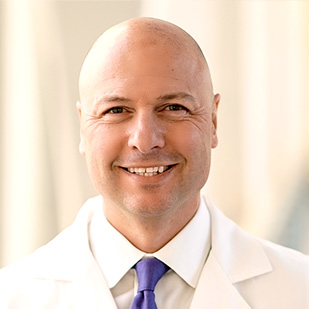Our Research Labs
Learn more about the lab work within our division.
The Green Laboratory studies the mechanisms of cholestatic liver injury and how liver cell transport is regulated. Current research focuses on the role of the unfolded protein response (UPR) in liver disease and the regulation of bile salt transport. Using genetically modified mice and various models of bile salt liver injury, the lab aims to pinpoint pathways involved in liver injury and repair, as well as identify potential therapeutic targets for cholestatic liver disorders.
The lab also explores liver injury mechanisms in fatty liver diseases, including non-alcoholic steatohepatitis. Research centers on the UPR's role in the development of fatty liver disease using modified mice and other models of liver injury. High-throughput techniques and murine Quantitative Trait Locus analysis are used to identify new UPR regulators in these diseases.
Publications
View Richard Green, MD's publications in PubMed.
For more information, please see Green's faculty profile.
Contact
Contact Green at 312-503-1812 or the Green Lab at 312-503-0089.
The Cong Lab investigates host-microbiome interactions at the intestinal surface and the pathogenesis of inflammatory bowel disease (IBD).
Yingzi Cong’s laboratory work focuses on immune regulation of host-microbiome interaction and regulation of IBD. The overall goal is to develop novel and feasible strategies to treat IBD. The intestine surface reaches 300m2 in humans and is exposed daily to large amounts of antigens that, in the great majority, are innocuous, originating from the diet and the resident microbiota, although the intestinal mucosa is also a major entry site for pathogens. Conversely, the vast immune system associated with the intestine must avoid penetration and spreading of pathogens while avoiding excessive or unnecessary immune responses that could jeopardize the integrity of the mucosal epithelial barrier and lead to IBD. Using a combination of intersectional genetics, single cell repertoire analyses, spatial analysis, imaging and transcriptomic tools, various animal models, and germ-free mice, the Cong lab investigates how microbiota via production of metabolites regulates mucosal immune responses, mainly IEC, T cells, B cells, and innate cells, to maintain intestinal homeostasis and how mucosal immune system responds to gut microbiota to regulate the pathogenesis of IBD.
Publications
View lab publications via MyBibliography.
For more information, visit the faculty profile page of Yingzi Cong, PhD, Professor
Contact
Contact Us: conglab@northwestern.edu
Contact Yingzi Cong, PhD: yingzi.cong@northwestern.edu
Lab Staff
Suxia Yao, MD
Research Associate Professor
suxia.yao@northwestern.edu
Wenjing Yang, MD/PhD
Research Assistant Professor
wenjing.yang@northwestern.edu
Tianming Yu, MD/PhD
Research Assistant Professor
tianming.yu@northwestern.edu
Griffin Esophageal Program
The Kenneth C. Griffin Esophogeal Program, led by John E. Pandolfino, MD, and Peter J. Kahrilas, MD, focuses on benign and malignant disorders of the esophagus, including GERD, hiatal hernia, achalasia, Barrett's esophagus, cysts, diverticulums (including Zenker's diverticulum), benign tumors, and esophageal cancers. The center works closely with colleagues in allergy, thoracic surgery, surgical oncology, dietary, pathology and radiation and clinical oncology.
Research
Our current research focuses on esophageal and oropharyngeal physiology and pathophysiology, including:
- Oropharyngeal studies are aimed at describing the normal mechanics of swallowing and the modifiability that can be imposed therapeutically. These studies use computerized analysis of manometric and videofluorographic swallowing studies.
- Pathophysiologic studies of the oropharynx focus on mechanisms that result in dysphagia and the efficacy of volitional compensatory strategies in modifying these defects.
- Analysis of esophagogastric junction pathophysiology, through the use of high-resolution solid-state manometry, with respect to reflux disease and esophageal motor disorders.
Previous research interests have included central nervous system neurophysiology, autonomic nervous system neurophysiology as it relates to sodium homeostasis, and screening for esophageal cancer.
Education & Clinical Experience
Trainees gain experience in many approaches used for disorders of the esophagus, including minimally invasive techniques, transhiatal, and transthoracic resection of the esophagus, partial and complete fundoplications for reflux disease, lengthening procedures for complex esophageal repairs and transoral stapling (without an incision) of Zenker's diverticulum.
Interventional Endoscopy Program
The Interventional Endoscopy Program at Northwestern is one of the largest, most comprehensive intervnetional programs in the U.S. It is a national leader in advanced endoscopic innovation, with a strong focus on translational research, technology development and academic collaboration.
Research Focus Areas
Pancreaticobiliary Innovation
- AI-enhanced radiologic interpretation
- Molecular diagnostics for cyst fluid
- Standardization of guideline-based care
Biliary Endoscopy
- Advanced cholangioscopy and tissue acquisition
- Device innovation, including single-use duodenoscopes
- Novel techniques for complex biliary conditions
Endoscopic Ultrasound (EUS)
- Development of therapeutic EUS applications
- Integration of AI for image interpretation and diagnostics
Esophageal & Anti-Reflux Research
- Hybrid endoscopic-surgical approaches for GERD
- Post-ablation anti-reflux strategies in Barrett’s esophagus
- Minimally invasive techniques like TIF and LINX
Endoscopic Mucosal Resection (EMR)
- EMR for gastric, duodenal and colorectal lesions
- Third Space Endoscopy Procedures
- POEM, G-POEM, Z-POEM and C-POEM
- Endoscopic Submucosal Dissection (ESD) for early GI cancers
EndoHepatology
- Endoscopic diagnostics and interventions
- Multidisciplinary approaches to cirrhosis and transplant care
Endobariatrics & Metabolic Research
- Endoscopic therapies for obesity
- Integrated care models for metabolic disease
